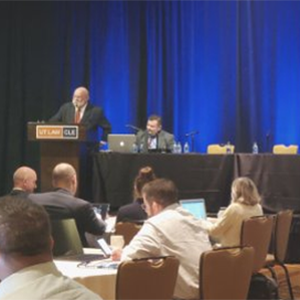
eCourse
How to Avoid Malpractice in a Post-Pandemic Legal World
Contains material from Apr 2024
Lots of very interesting information regarding what is happening with attorney mental health
Technical Questions?
512.475.6700
service@utcle.org
Includes: Video Paper Slides
Preview Sessions
Show session details
Robert L. Tobey
Download session materials for offline use
Session 1 —60 mins
How to Avoid Malpractice in a Post-Pandemic Legal World (Apr 2024)
Law practice has been forever changed by the Covid-19 pandemic with the widespread adoption of remote work. While “work from home” has been eagerly embraced by many lawyers, it has caused an increase in age-old ethical problems for lawyers. This course is designed to help practitioners avoid conflicts and unintended clients, safeguard client confidentiality, maintain competence, and form better communication habits with their clients, other attorneys and staff.
Originally presented: Mar 2024 First Friday Ethics (March 2024)
Robert L. Tobey,
Johnston Tobey Baruch, P.C. - Dallas, TX